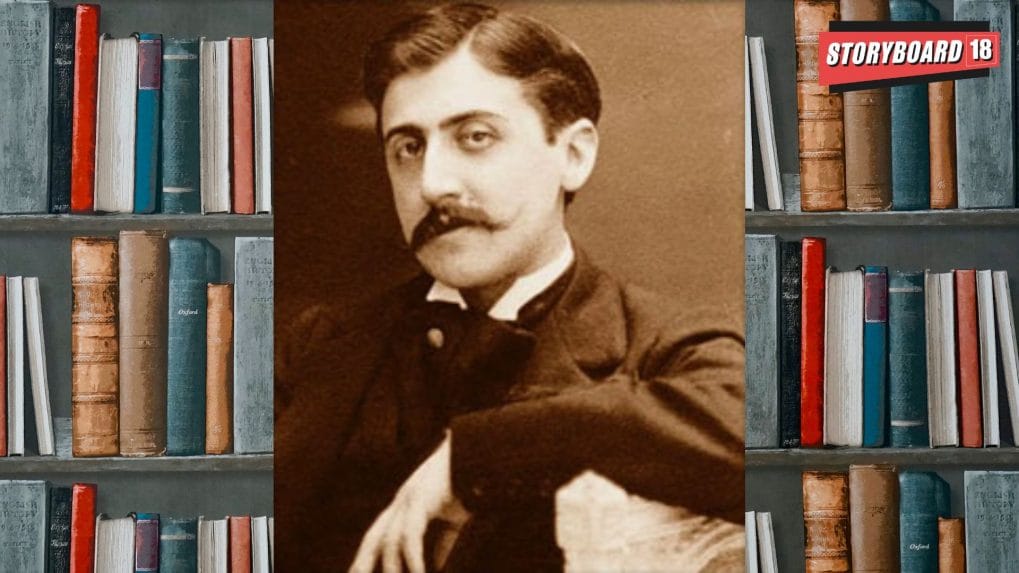How it Works
WPP, Havas, Omnicom: Are advertising’s biggest holdcos recasting agencies as AI Operating Systems?

In July 2025, the world will be celebrating the 154th birth anniversary of Marcel Proust; the man who wrote the world’s biggest novel, comprising more than 13,00,000 words.
Titled, ‘In Search of Lost Time,’ the book is written in seven volumes. In spite of its “enormity” and complexity, the book has never been out of print and has been translated into well over 40 languages. This is probably why Graham Greene once wrote: "Proust was the greatest novelist of the twentieth century, just as Tolstoy was in the nineteenth..” I came across Proust first in the book “How Proust can change your life’ by Alain De Botton, a literary criticism of Proust’s work. It was then that I realized, that there is no dearth of books with Proust in the title.
There’s ‘Proust And Three Dialogues with Georges Duthuit’ by Samuel Beckett, ‘What Proust Heard’ by Michael Lucy, ‘Proust and The Squid’ by Maryanne Wolf, ‘Proust was a Neuroscientist’ by Jonah Lerner, ‘The World According to Proust’ by Joshua Landy, etc. Proust was highly influential as a literary figure and a very unique person too.
Here are our five Bookstrapping insights, about the man literature will simply not let us forget.
1. Proust had the ability to ‘dizzy people’ he met with ‘verbal compliments’. He always hoped to make a good impression on the people he met. Hence, many adulatory books such as My Friend Marcel Proust by Maurice Duplay, My Friendship with Marcel Proust by Fernand Gregh and Letters to a Friend by Marie Nordlinger followed after his death, adding to the list we've already shared above. There is also a biography by George D Painter.
2. The exaggerated scale of Proust's social politeness was because he genuinely believed in the degree of insincerity every friendship demands. In fact, Proust once famously compared friendship to reading because both involved communion with others. However, he maintained that reading was better because, 'there is no false amiability with books,' whereas 'in life we are often led to have dinner because we fear for the future of a relationship were we to decline the invitation.' Quite amusingly true.
3. For some reason he was always terrified that the severity of his illness would not be appropriately considered! Indeed for the last 16 years of his life he described his state as 'suspended between caffeine, aspirin, asthma and angina pectoris and all together between life and death, every six days out of seven.'
4. About his literature itself, critics have always said that individual Proustian sentences are 'snake-like in construction; the very longest of which, located in the fifth volume of ‘In Search of Lost Time,’ ….. would stretch around the base of a bottle of wine 17 times'. Proust also objected to cliches. 'The problem with clichés is not that they contain false ideas, but rather that they are superficial articulations very good ones!' he said. 'The sun is often on fire at sunset and the moon discreet, but if we keep saying this every time we encounter the sun or the moon, we will end believing that this is the last rather than the first word to be said on the subject! Clichés are detrimental in so far as they inspire you to believe that they adequately describe a situation…' Wow!
5. For his 30 odd books, Proust also wrote a lot about the value of books to the reader, even though he might not have intended to. He said, 'In reality, every reader, while he is reading, is the reader of his own self. The writer's work is merely a kind of optical instrument, which he offers to the reader to permit him to discern what, without the book, he would perhaps never have seen in himself. The reader's recognition in his own self of what the book says is the proof of its truth.”
Admiring Proust’s craft, Virginia Woolf famously said, “I feel I can write like that, and seize my pen and then I can’t write like that. Scarcely anyone so stimulates the nerves of language in me: it becomes an obsession!”
Way ahead of his time when it came to representations of sexuality, perhaps the greatest ode to him, is that even those who haven't read Proust, speak of him freely and often.
Reeta Ramamurthy Gupta is a columnist and bestselling biographer. She is credited with the internationally acclaimed Red Dot Experiment, a decadal six-nation study on how ‘culture impacts communication.’ Asia's first reading coach, you can find her on Instagram @OfficialReetaGupta.
From purpose-driven work and narrative-rich brand films to AI-enabled ideas and creator-led collaborations, the awards reflect the full spectrum of modern creativity.
Read MoreThe Storyboard18 Awards for Creativity have unveiled a Grand Jury comprising some of India’s most influential leaders across advertising, business, policy and culture, positioning it among the country’s most prestigious creative award platforms.